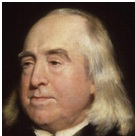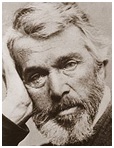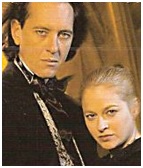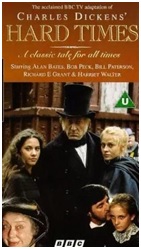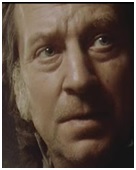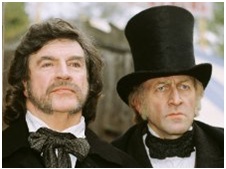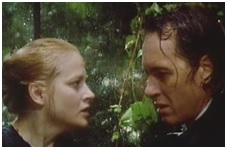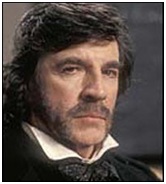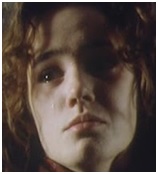|
 |
|
 |
|
|
||
Hard Times - Business Ethics and Happiness
Hard Times (1854)
Written by the English novelist, Charles Dickens (1812-70) as a criticism of:
1. Free market economics (based on profit, self-interest, worker exploitation and the ideas of Adam Smith, pictured right above)
2. Utiliatrianism The belief that only useful things are valuable with the possible exclusion of the arts, creative imagination and human kindness This was supported by the English philosophers:
Fun facts
Who was the book dedicated to? The Scottish philosopher, Thomas Carlyle (1795-1881), pictured right, who (like Dickens) hated the ruthless pursuit of profit.
Key characters Thomas Gradgrind, rich, retired merchant with five children Louisa and Tom, his oldest children Josiah Bounderby, his friend and rich factory owner Stephen Blackpool, a worker in Bounderby’s factory Sissy, a poor circus girl
The story Thomas Gradgrind is a rich, retired merchant in the industrial city of
Coketown in northern England, becoming its Member of Parliament. He removes any fun and imagination from the upbringing of his children, Louisa and Tom, and the education of the pupils in the school he finances. But he looks after the poor (but kind) Sissy after her father,a circus performer, disappears. Gradgrind hates the circus, because he thinks it's frivolous and damagingly useless. Louisa marries the much older Josiah Bounderby, the rich banker and owner of a cotton mill, where the kind Stephen Blackpool works. Stephen falls in love with another poor worker, Rachael, but he is married and stays loyal to his horrible and drunken wife. Stephen refuses to strike or join a trade (or labour) union, led by Slackbridge, because he thinks a strike would harm relations between management and workers. Stephen is shunned by his fellow workers and fired by Bounderby when he refuses to spy on them. Louisa gives him
some money, but Stephen is accused of a bank robbery after Tom tells him to be where it
happens. A young, wealthy Member of Parliament, James Harthouse, declares his love for Louisa (pictured right together in the BBC production) Louisa rushes to her father, Gradgrind, telling him about her unhappy childhood and terrible marriage with Bounderby. Gradgrind realizes the mistakes he has made. Sissy persuades Harthouse to save Louisa from disgrace and heartache by leaving her. Bounderby is furious about their friendship, making him more determined to capture Stephen with the help of his evil housekeeper, Mrs Sparsit, who jealously hates Louisa. Stephen falls into a coal mine on his way to Coketown to clear his name and dies with Rachael who (helped by Sissy and Louisa) has found him. Louisa and Rachael now realize that Tom was responsible for the bank robbery. They help
him to escape abroad with the assistance of Sissy’s old circus friends. Mrs Pegler, Bounderby’s loving mother, reveals that his impoverished and neglected upbringing is a lie. Five years later Bounderby dies alone and unhappy, unlike the transformed Gradgrind who is now devoting his life to the poor. He changes when Louisa tells him that his loveless philosophy has always made her unhappy. Tom is penitent about his past crimes but dies heartbroken, separated from Louisa. Louisa never marries again, or has children, but is taught to love others through Sissy’s love and happy marriage.
Lessons for business ethics and happiness 1. Employees are people with feelings Dickens (pictured right) called the book, Hard Times, because factory workers were so badly treated by businessmen like Gradgrind and Bounderby. But Dickens was against trade unions. Dickens (like Stephen Blackpool) thought that workers and management should resolve their differences through compassionately satisfying workers' needs, not
Rachael comments to Bounderby on how Stephen stood up to both him and the union: “The masters against him on one hand, the men against him on the other, he only wantin to work hard in peace, and do what he felt right. Can a man have no soul of his own, no mind of his own?”
2. Protect the poor Dickens championed the rights of the weak and oppressed like Stephen Blackpool, Sissy and Louisa. People did boring work 15 hours a day in a polluted city and poor housing. But the library provided relief, because: “Fiction gives them relaxation and braces them for their daily routine”, Dickens says 3. Stand up for your principles Stephen Blackpool is a hero because he stands by his moral ideals of honesty, humanity, compassion and integrity, even when they bring him:
He loves Rachael but remains loyal to his horrible wife. Stephen (Bill Paterson) is pictured right above in the 1994 production.
4. Learning is fun and worthwhile Children’s education in Gradgrind’s school is made boring, unimaginative and uncreative through:
Gradgrind doesn’t believe in fun, making Tom and Louisa’s childhood miserable. They love the circus, because it's fun and stimulates their imagination. Gradgrind (Bob Peck, pictured right, in the 1994 BBC production with Bounderby, left):
5. Love is all The book shows that life without love is worthless, even if you have lots of
money. Sissy, Rachael, Stephen and Louisa (pictured right with James Harthouse in the BBC production) are all heroes because their hearts are full of kindness for others. Stephen loved Rachael because her selfless love changed him “from bad to good”. The unhappiest character, Bounderby, is selfish, insensitive and a ruthless businessman. Louisa doesn't love him, but marries him to please her father, Gradgrind, Bounderby's friend. Tom's crime means that he dies hearbroken without Louisa, whom he loves more than anybody. 6. Principle before profit Money and profit are Bounderby’s idols and his relationships suffer because of it (particularly with Louisa and his workers). Bounderby (Alan Bates in the 1994 BBC production, pictured right) is:
Gradgrind redeemed himself by: “making his facts and figures subservient to faith, hope and charity” .
7. Happy people talk to and understand each
other Louisa and Bounderby are unhappy because they don’t talk to (and so understand) each other. Gradgrind is so focused on his own views that he fails to see that he has made Louisa so unhappy But Sissy is great with people, persuading Harthouse to leave and organzing the discovery of Stephen. Sissy (Emma Lewis) is pictured right in the 1994 BBC production.
Key quotes on decision making Facts alone are wanted in life, Thomas Gradgrind I always come to a decision...and whatever I do, I do at once, Bounderby.
Key quote on wisdom Some persons hold ... that there is a wisdom of the head, and that there is a wisdom of the heart, Gradgrind.
Key quotes on workers and trade unions I tell you that the hour is come, when we must rally one another as one united power and crumble into dust the oppressors that too long have battened upon the plunder of our families, upon the sweat of our brows ... , Slackbridge.
Two literature websites to recommend 1. sparknotes.com 2. litcharts.com
A big thank you to... The BBC for the pictures. |
|
|
||
|
|
||
| Copyright © wisdomtowin.com 2025 All Rights Reserved | ||
|




